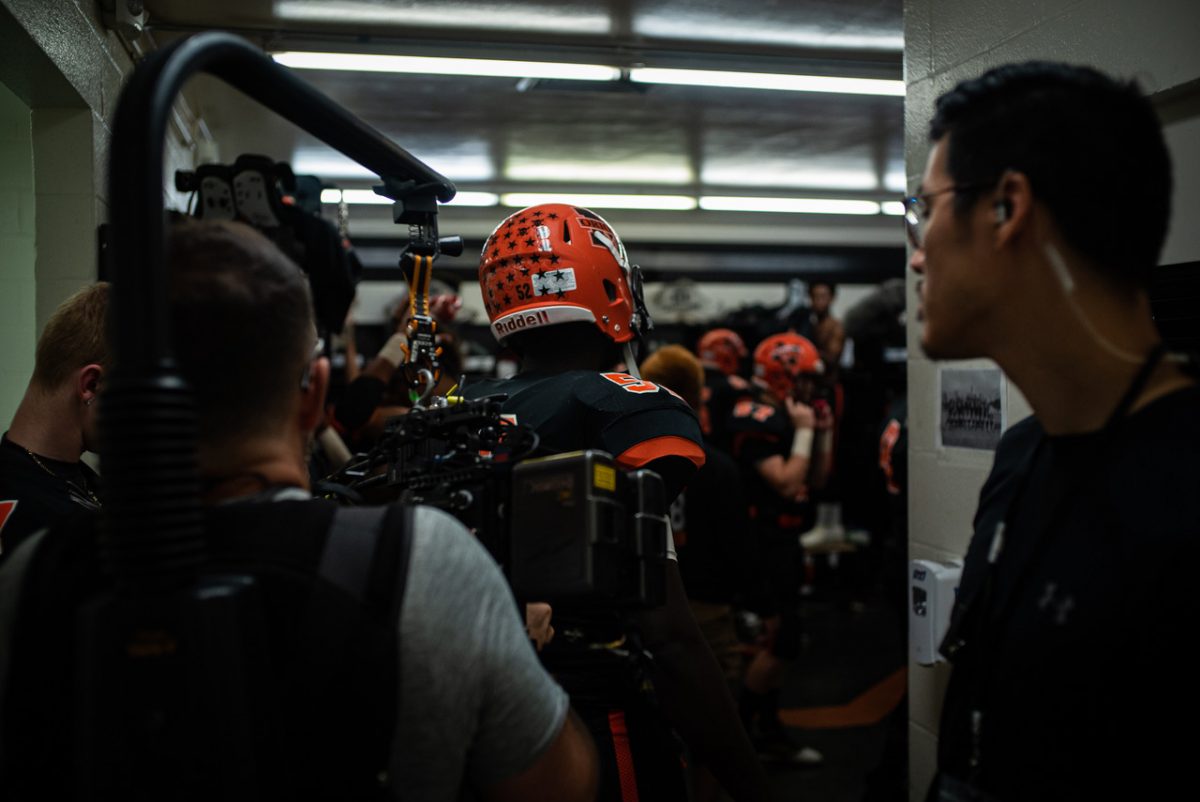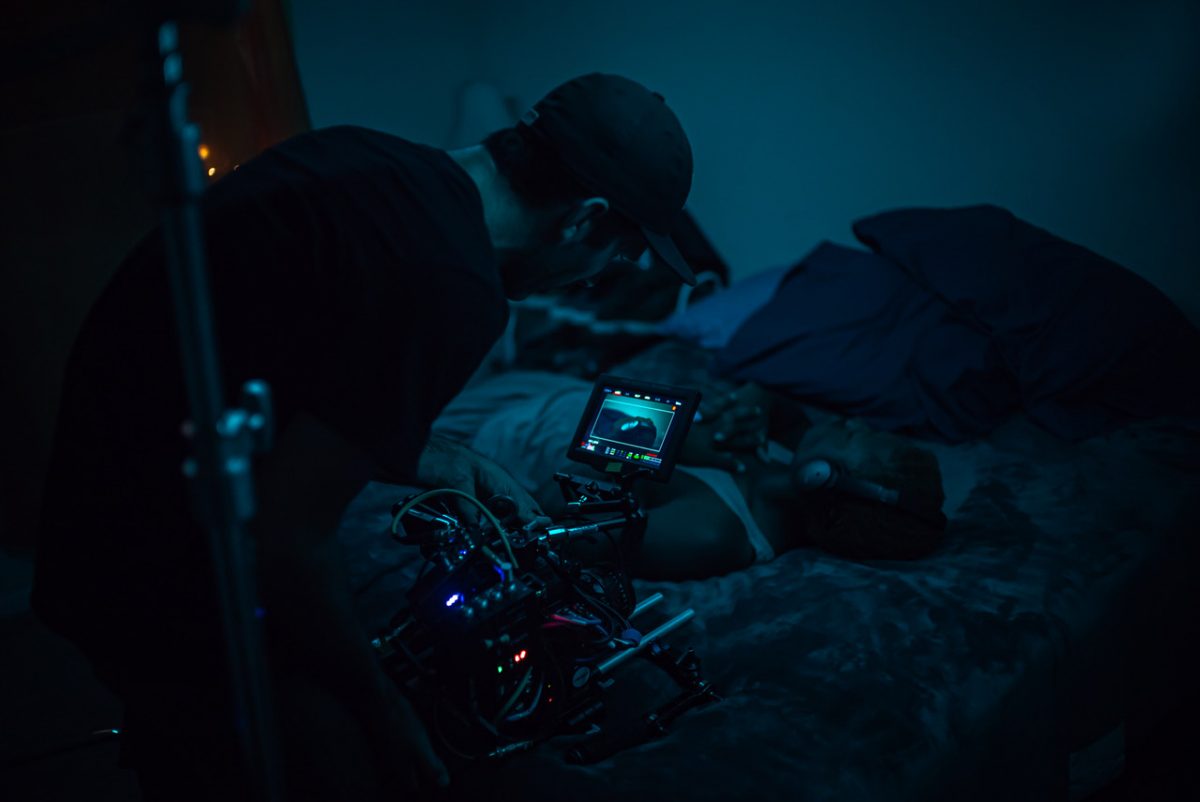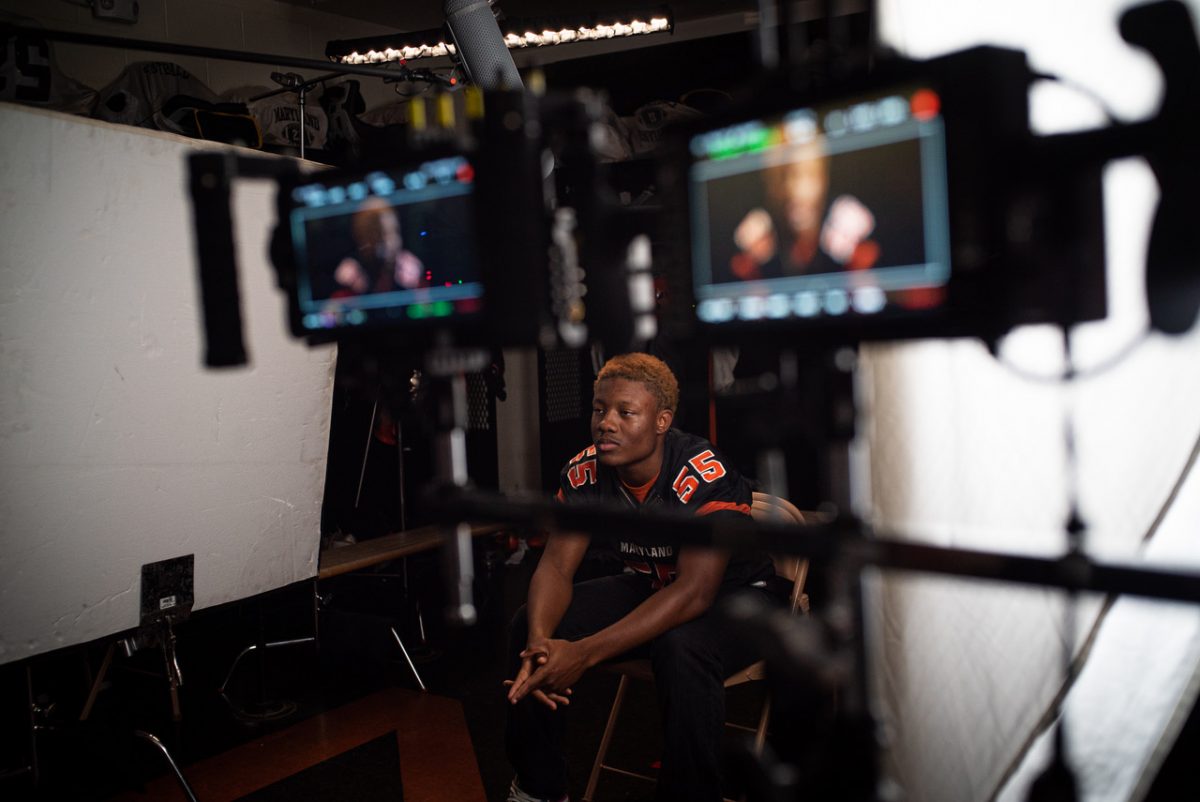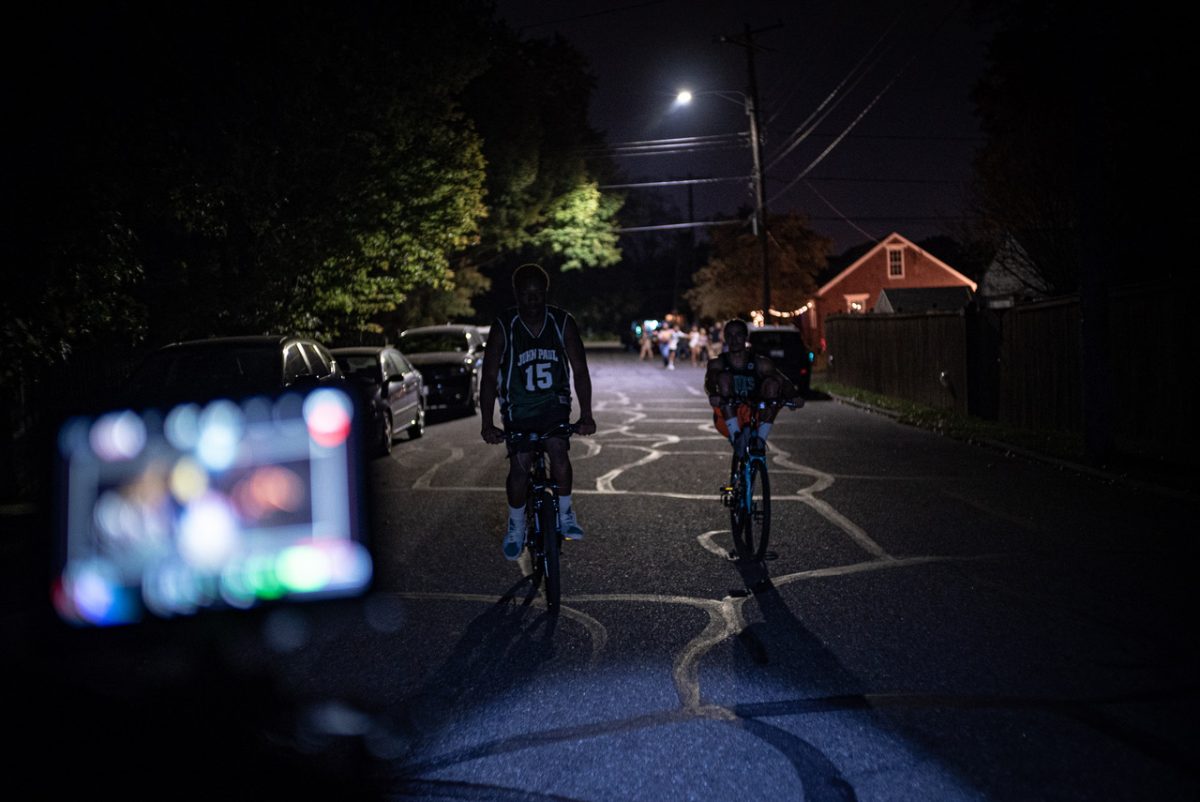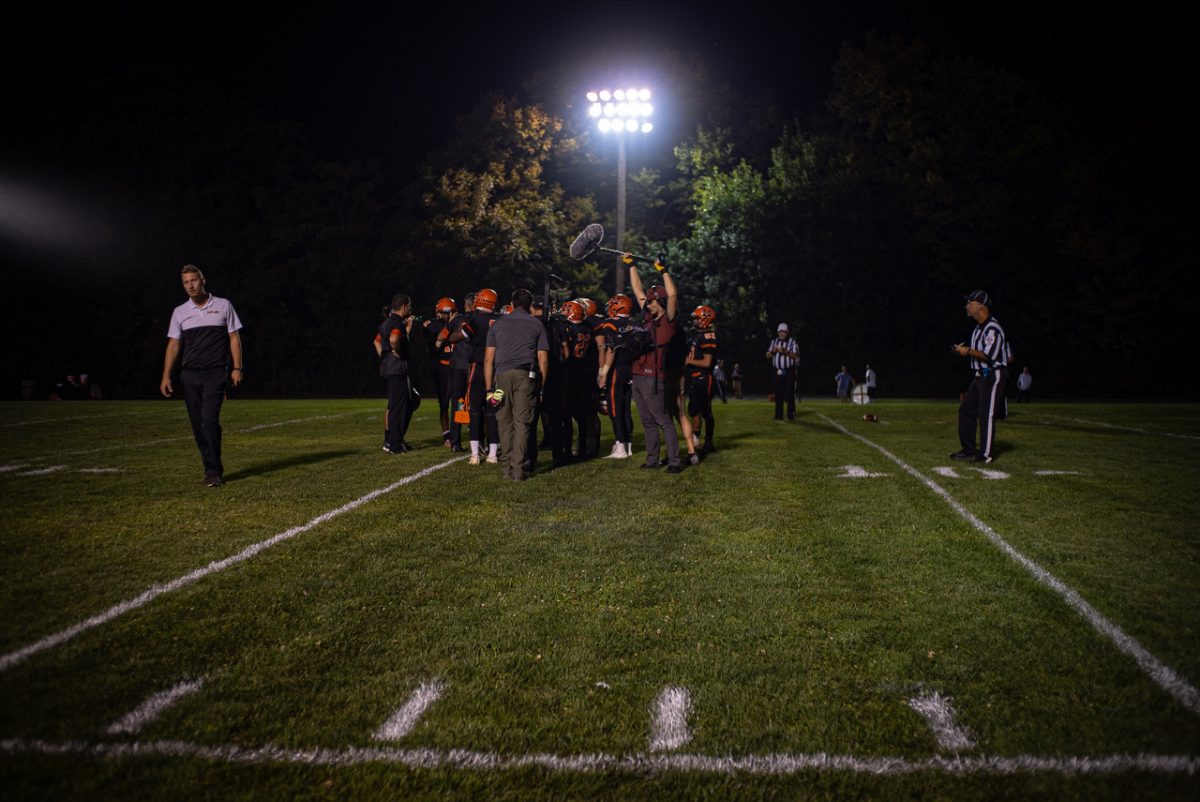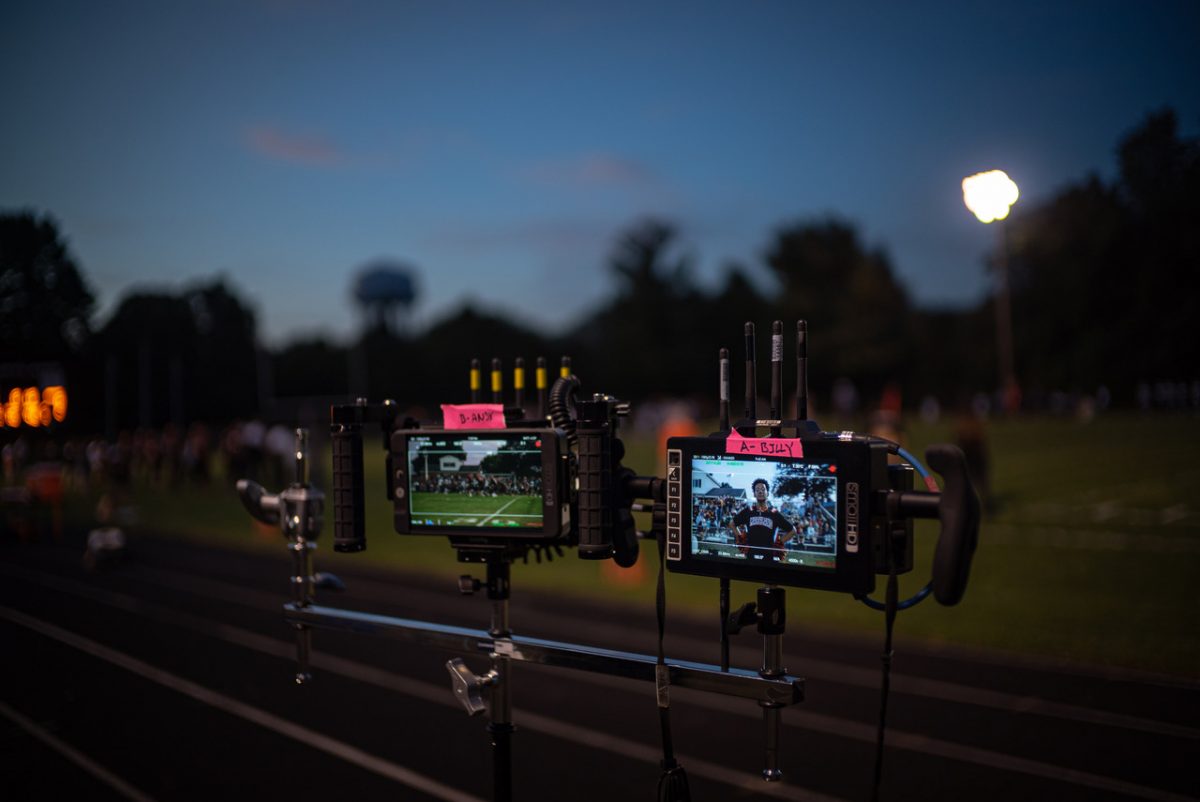Ontario producer earns first Academy Award nomination with documentary
By Nick Petlock on April 12, 2022
Geoff McLean has produced music videos for Fiest and Billy Talent, Kelly Clarkson and Imagine Dragons. He has also created video documentaries and television specials for artists such as Avril Lavigne and Weird Al Yankovic.
But he has since filmed more than the music industry.
The Canadian producer gives insight into his love of film and what went into producing the Academy Award nominated documentary, “Audible” – a film that follows the lives of football seniors at the Maryland School for the Deaf – a team that had a 42-win game streak.
How did you come into filmmaking?
I’ve always been making films in some way, shape or form. I started making skateboard and snowboard videos when I was a kid, and that evolved into making funny films with my friends.
I studied film starting in high school. I grew up in a small town called Orangeville, and they had a media program. So I really took an interest there and followed that by going to film school at Humber College. Then from there, I got into production, started getting paid on all kinds of wacky music videos.
Ten or more years ago, I got into making documentaries when I was still in Toronto. I kind of stumbled into that format, but I’ve really fallen in love with it and continue to fall in love with it – every new project that I work on. It’s just been sort of a natural evolution.
What distinguishes documentary filmmaking compared to fiction or biopics?
The process is completely different with documentaries. A lot of times, you’re learning as you go, kind of building the ship as you’re sailing it, which is part of what makes it exciting because you go into these projects with one idea in mind, and oftentimes you walk out with something sometimes completely different, sometimes slightly different, but it’s always different than what you set out to do, at least the projects that I’ve worked on.
And that’s what kind of makes it exciting is you’re constantly shifting and following the story and just going where the most interesting things are happening. If that means you have to sort of leave some of your original ideas behind, then you just have to be okay with that.
What elements do you focus on when you’re making documentaries?
I always gravitate toward stories that have emotion. I try to make or be involved in projects that are projects that I would want to watch and that would affect me emotionally or teach me something. So I’m always looking for that anytime I get into a project. It’s an emotional connection.
Access is another really big thing – being able to get beyond the surface layer and to do that oftentimes, you need people that can get you access to people that will allow you into their lives and tell you their stories, and be comfortable doing that. Sometimes you meet people that have interesting stories, but they’re not necessarily open to or willing to let themselves open up all the way. So you need to kind of have all of those ingredients to make something really interesting and compelling.
What was the original idea behind “Audible”?
We knew about the football team, and we knew we had a rough idea in regards to some of the personal lives of some of the players. Matt [Ogens] had interviewed them before I got involved in the project, so we had this material, these interviews, that we studied, and we tried to hone in on who some of the central characters might be. We went into the project understanding that we were going to go and make a film about this football team that was undefeated, and as we got into it, we started to learn more about the characters.
Certain stories kind of rose to the top and became more interesting, and we learned about a lot of new stories and it all kind of organically took shape. It was always still about the team – the core concept was always still there, but we wanted it to be a very personal story. So we did know when we were going in that we wanted to get deeper than just football, and we wanted to get into the lives of these kids and learn about them and see what was going on there.
What was the influence behind putting together this film?
We wanted to blur the line between documentary and scripted in the way that we approached it, in the way that we shot it, and all the sound and everything. We wanted to give it a feature film feeling, even though it was completely unscripted. That was another really big thing that attracted me to it was having that kind of goal to blur those lines. And it seems to feel like we achieved that.
Part of it, too, is the people we were able to get involved. We had such a talented crew. Our cinematographer, our composer, our editor, our sound designer are all very incredibly talented people. And I think the story and the subject matter is what really drew that level of talent to the project. It was just something different.
Even with the sound team – it was the opportunity to create this new sort of soundscape – actually creating this sound environment or an interpretation of the sound environment that, you know, we’re typically not used to hearing.
How long was the production process?
Matt, the director, was developing this film for a very long time. He grew up in Maryland, really close to the school and had been trying to make this film for a long time.
The end of 2018, I believe, is when Netflix greenlit the project, which was very exciting and then we very quickly went into production and started shooting in 2019. We shot around 14 days, spread out over eight or nine months because we wanted to show a passage of time and try to cover as much of the senior year as we could.
It was only about a year of actual production, and then we started post at the end of 2019, and we were sort of just getting into the swing of things when the pandemic hit. So that slowed us down. We had to quickly figure out how to do all of the post-production remotely, which is now pretty common but back then was the very beginning of it.
We started doing festivals at the beginning of 2021. Then we launched the film that July. So, from beginning to end of production and post, it was a little bit less than two years.
While “Audible” centres around the deaf, did you have an interpreter or did you learn sign language?
I grew up very close to the deaf community. One of my closest friends was deaf, and I often hung out with him and all his friends. So I knew basic sign language since I was young, which again is another reason why I was so drawn to this project. I took sign ASL classes when we first went into production, just to brush up and to again be able to communicate on a basic level without an interpreter, which I think did help kind of break the ice a little bit.
But yes, we did have interpreters with us any time we were shooting, not only for them but also for us. When we’re trying to be flies on the wall, capturing a scene, we also need to understand what people are saying and where conversations are going.
How excited are you with the recognition that “Audible” has received, especially with the Academy Awards?
It’s insane! I mean, we’re all completely blown away. It’s been a life-changing experience for sure. The kids are all just completely blown away. Everyone involved is. We always knew the film was going to be special from the very first day we started working on it. But to see it now being recognized on this level, and so many of our heroes and people that inspire us telling us how much the film means to them – it’s all just completely surreal, and it’s very exciting.
What advice do you have for up-and-coming filmmakers or those just starting in the business?
The biggest thing is to just keep at it and keep believing in yourself and following your dreams and goals because it’s so hard. It feels impossible sometimes when you’re first starting. For me now, one big thing that sort of evolved is that I always try to feel out projects and what kind of scenarios are happening around them, and what’s drawing me to them and what kind of serendipitous events are taking place that’s pulling me towards them.
It’s so hard to get lost in developing projects because they can take a long time, and people come and go, and it’s easy to get discouraged and let projects fall off. The ones that I tend to pursue the most are the ones that there’s just random circumstances that keep pulling me back in.
The biggest thing is just finding the motivation to keep going when it seems impossible.
“Audible,” directed by Matt Ogens, produced by Geoff McLean, is available on Netflix.

